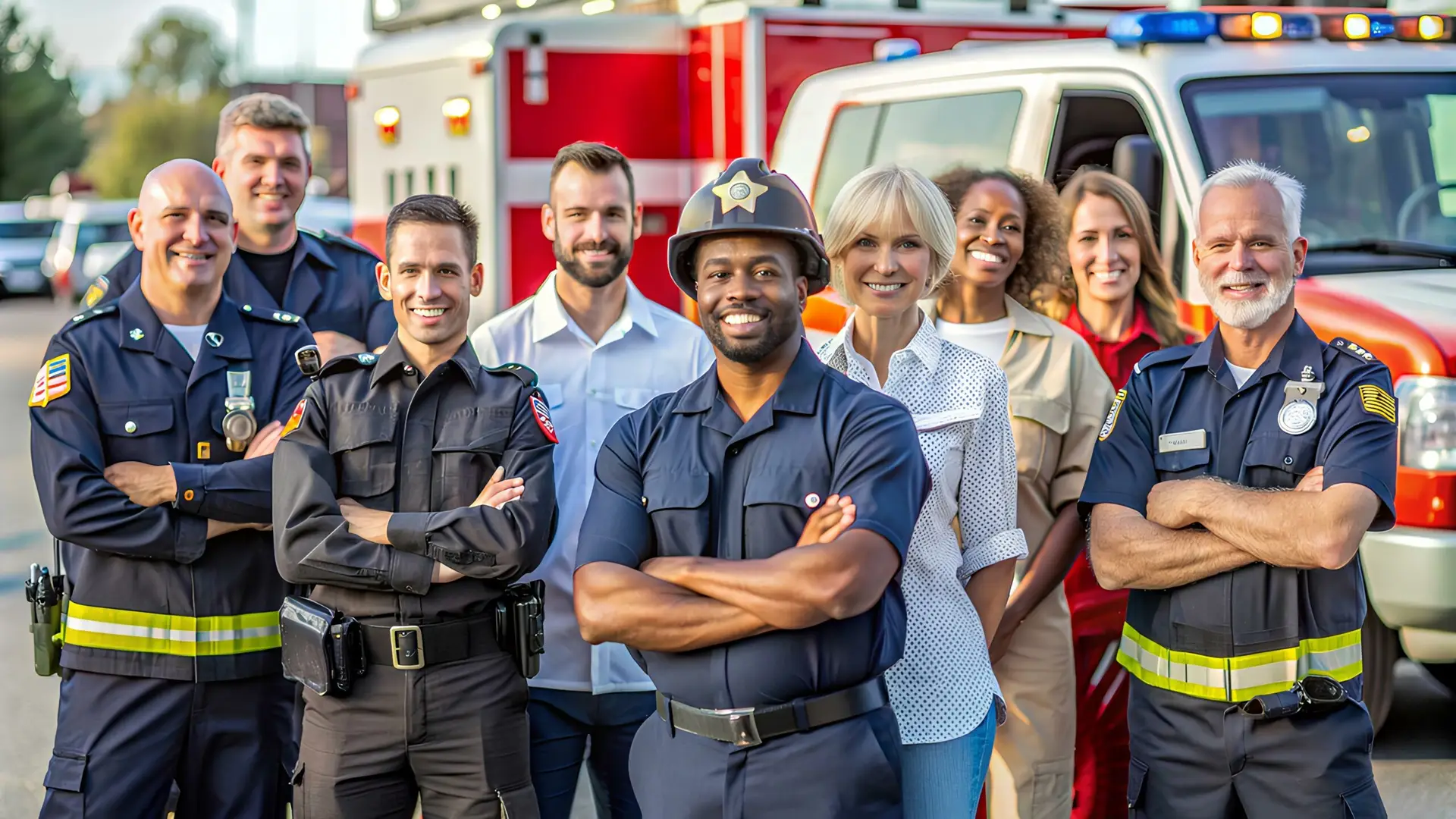
Agency & Group Training: CID & A-TIP for First Responders and Healthcare Teams
Rapid Response Training for Critical Incidents
Police officers, firefighters, medical staff, and first responders face unique pressures that can leave lasting psychological impact. When trauma goes untreated, the risk of developing PTSD, anxiety, depression, and other mental health challenges increases.
Our Agency & Group Training equips teams with CID (Critical Incident Desensitization) and A-TIP (Acute Traumatic Incident Protocol) — two evidence-informed, rapid interventions designed to reduce acute distress and promote recovery. Think of them as psychological first aid that can be applied in minutes, when it matters most.
What Are CID & A-TIP?
CID and A-TIP are highly focused, brief interventions that draw on the same principles as Eye Movement Desensitization & Reprocessing (EMDR). Unlike traditional talk-based approaches, these methods can quickly help individuals stabilize after a traumatic or distressing event.
- Time-efficient: Just 5–10 minutes per intervention
- Effective: Rapidly decreases emotional disturbance
- Practical: Can be used during or immediately after critical incidents
Developed by Gary Quinn, MD and Roy Kiessling, LISW, these protocols have been successfully taught to emergency responders, healthcare workers, and educators across the U.S. and internationally.
Why Agency & Group Training Matters
First responders and healthcare providers encounter situations most people never face: accidents, violence, natural disasters, loss, and more. These experiences can take a toll, even on the most resilient professionals.
Early intervention through CID and A-TIP:
- Reduces stress reactions before they escalate
- Helps prevent long-term mental health complications
- Supports improved functioning and faster return to balance
By training as a team, agencies foster a culture of resilience, ensuring members can care for themselves and one another after high-impact events.
How CID & A-TIP Work
Known as the “CPR of psychological trauma,” these techniques focus on one recent memory at a time, making them ideal for on-scene or follow-up use.
CID and A-TIP protocols use bilateral eye movements to rapidly decrease the vividness of distressing images and the intensity of overwhelming emotions. The process helps individuals re-engage with their environment and responsibilities more effectively.
Because these methods are not considered psychotherapy, no mental health license is required to use them. With proper training, anyone in your agency can apply these tools immediately.
Training Format & Details
Our CID & A-TIP training workshop is designed for agencies and groups that need practical, ready-to-use interventions.
- Length: 3-5 hours
- Who can attend: Police officers, firefighters, paramedics, healthcare staff, teachers, and other first responders
- Outcome: Participants leave prepared to administer CID & A-TIP protocols confidently in the field
This training gives teams immediate, hands-on skills they can use the very same day.
Benefits of Group Training
Training together allows entire departments to:
- Develop a shared language and approach to trauma care
- Strengthen peer support within teams
- Ensure consistent use of techniques across shifts and units
- Build collective resilience in the face of ongoing exposure to critical incidents
When agencies are trained together, the impact is multiplied — everyone has the tools, and everyone benefits.
Schedule Training for Your Team
Equip your department with proven, efficient, and life-changing tools for handling trauma in the moment.
Serving Communities Across Ohio
With convenient access for clients in Brunswick, Medina, Cleveland, Strongsville, and throughout Ohio, Mind/Body Intitute is proud to offer CID & A-TIP training to area agencies and groups.
Our workshops are designed to meet the needs of police departments, fire departments, healthcare providers, and first responders across the state. Whether your team is based in Northeast Ohio or beyond, we provide effective, accessible training that builds resilience and supports recovery after critical incidents.
